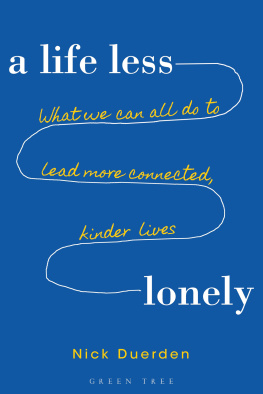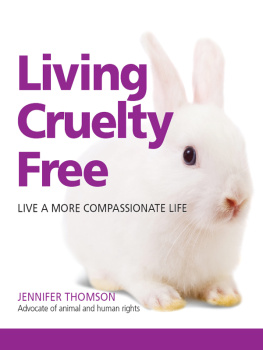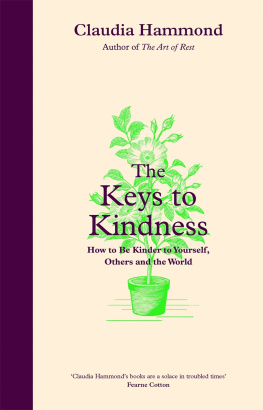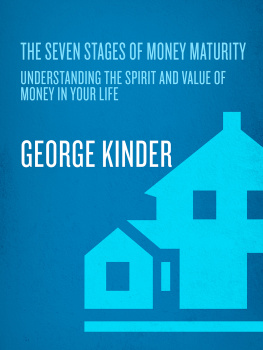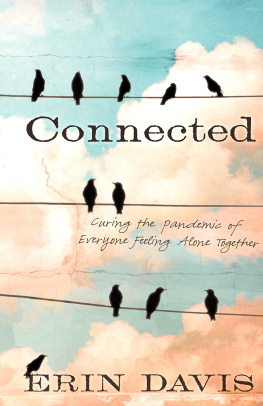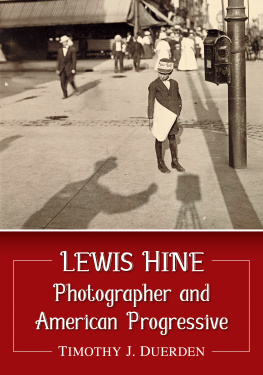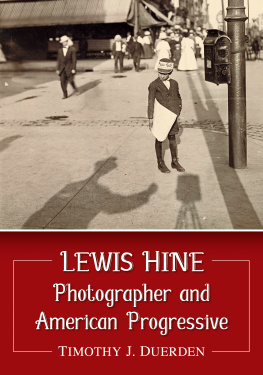Duerden - A Life Less Lonely : What We Can All Do to Lead More Connected, Kinder Lives.
Here you can read online Duerden - A Life Less Lonely : What We Can All Do to Lead More Connected, Kinder Lives. full text of the book (entire story) in english for free. Download pdf and epub, get meaning, cover and reviews about this ebook. City: London, year: 2018, publisher: Bloomsbury Publishing Plc, genre: Art. Description of the work, (preface) as well as reviews are available. Best literature library LitArk.com created for fans of good reading and offers a wide selection of genres:
Romance novel
Science fiction
Adventure
Detective
Science
History
Home and family
Prose
Art
Politics
Computer
Non-fiction
Religion
Business
Children
Humor
Choose a favorite category and find really read worthwhile books. Enjoy immersion in the world of imagination, feel the emotions of the characters or learn something new for yourself, make an fascinating discovery.
A Life Less Lonely : What We Can All Do to Lead More Connected, Kinder Lives.: summary, description and annotation
We offer to read an annotation, description, summary or preface (depends on what the author of the book "A Life Less Lonely : What We Can All Do to Lead More Connected, Kinder Lives." wrote himself). If you haven't found the necessary information about the book — write in the comments, we will try to find it.
Duerden: author's other books
Who wrote A Life Less Lonely : What We Can All Do to Lead More Connected, Kinder Lives.? Find out the surname, the name of the author of the book and a list of all author's works by series.
A Life Less Lonely : What We Can All Do to Lead More Connected, Kinder Lives. — read online for free the complete book (whole text) full work
Below is the text of the book, divided by pages. System saving the place of the last page read, allows you to conveniently read the book "A Life Less Lonely : What We Can All Do to Lead More Connected, Kinder Lives." online for free, without having to search again every time where you left off. Put a bookmark, and you can go to the page where you finished reading at any time.
Font size:
Interval:
Bookmark:


In memory of Jo Cox

Contents
I would like to thank everybody who took the time to talk to me, to tell me about their work and their often very personal situations, and how they are working together to make everybody, all of us, less lonely, less isolated and more connected. Im particularly grateful to Iona Lawrence, Alexia Latham, Julianne Marriott, Steve Cole, Hannah Morrish, Jade Gadd, Mark Busse, Dr Ron Roberts, Diana Saif, Melissa Rose Lawrence, Lily Piachaud, Ian Treherne, Sara Maitland, Michelle Kennedy, Dawn Cahill and Ali Somers. Thank you to Kim Leadbeater, for being an inspiration. To Tracey Crouch MP, for taking up the cause. To Sarah Skipper for attention to detail. And to Charlotte Croft for everything else, and everything in between.
So, heres the dilemma: how do you write a book on loneliness? How best to even attempt to tackle an often immersive condition that very likely everyone has some experience of, but one that precious few have spoken up about until very recently? What is, precisely, the most effective way to go about highlighting how we should all be dealing with it, individually and communally, attempting to overcome it, leave it behind and perhaps even best case scenario avoid falling prey to it in the first place?
Loneliness is that most amorphous thing. Its more tangible than depression but far less easy to explain. You cannot medicate for loneliness (although certain nationalities do try), but for many it is increasingly difficult to escape. It has been called the silent scourge, the prevailing stigma of the twenty-first century. Its dictionary definition has an enviable succinctness to it: a subjective, unwelcome feeling of lack, or loss, of companionship, which happens when we have a mismatch between the quantity and quality of social relationships that we have, and those we want.
It is in that clause we find the often un-navigable gulf: the quantity and quality of social relationships that we have, and those we want . If there are certain sentences that resonate off the page more than others, this is one of them. We all know people, but do we know the right people? Are our friends the best friends for us, or merely acquaintances with whom we never fully connect? And if so, how on earth do we meet better ones?
Loneliness is something that can affect anyone and everyone, irrespective of age, race or class. From the bullied child to the new mother, from the pensioner who has outlived friends and family members to teenagers whose primary grasp on social life is filtered through the glow of a mobile phone, its tentacles are far-reaching and rapacious: research suggests that one in ten GP appointments today are being booked simply because people crave the social interaction they currently lack.
A study by the Co-op and the British Red Cross Sundays are particularly guilty of exacerbating loneliness in anyone prone to it, and the Christmas period can be an open wound.
Refugees and migrants face a great many issues, of course, among them housing, discrimination and lingering poverty; those who do manage to settle successfully report that a nagging sense of isolation limits any potential for assimilating into their new environment. Not that all settled refugees particularly like the concept of assimilation itself, as we shall see later.
So its presence in modern society is palpable, the most common of ailments. And yet, despite its clear prevalence and in some cases unavoidable ubiquity, it remains a tricksy subject. It is something that is hard to admit to, to others as much as to oneself, not even in a climate where we are increasingly facing up to our personal issues, anxiety and depression among them. Many might consider loneliness a confession too far, a sign of too much vulnerability, a shameful failing. But this is something we must challenge. The human condition is not a failing. And we need to recognise, too, that we are more and more being encouraged to be, and remain, isolated creatures living in our own individual bubbles. Society, which evolves at the same queasy pace as the technology that powers it, is suffering in ways perhaps we never quite saw coming. As we move away from family and friends into ever-swelling cities in pursuit of work and careers more of us than ever are now living alone so we become increasingly focused on our phones to help keep us connected. But connection no longer quite means what it used to, and being repeatedly swiped left in pursuit of love rarely serves as a good boost for morale. Friends on Facebook are not necessarily friends in real life. Ones Twitter followers are unlikely to make ideal wedding guests.
And so in todays workplace, we toil away in our little capsules alongside other people whom we barely register. When the situation arises where we actually need to communicate directly with them, we are far more likely to type out a message than lean over and actually speak. Many people now work from home these days, or else in so-called third spaces. Those who do choose to take their laptops somewhere public a caf, the library, or the open-plan reception areas of certain hip hotels that rely on the presence of beards and tortoiseshell spectacles to help boost their TripAdvisor rating do so with an almost monomaniacal attitude, staring only, and exclusively, at their screens. Why talk to the person next to you and risk an upturned nose for your efforts when you can message an old friend youve not seen for years online?
But then weve come to love our screens, to rely wholeheartedly on them. They are so faithful to us, so loyal. We gaze at them, protect them, and consult with them far more than we do our parents, friends or children. They are our portal to the rest of the world, and the rest of the world is always far more interesting than whatever may be happening around us even if, strictly speaking, it actually isnt. Our screens obsess us nonetheless. Why else do we walk into lampposts, tumble up and down escalators, or lose threads in verbal conversations that in many cases we ourselves have initiated? Whether its social media, sports or news outlets, online porn, or whatever else our screens may offer up, they command more of our time than all the flesh and blood around us.
Conversation has fallen silent. Weve learned to talk with our thumbs more than our voices. Friends have been relegated to avatars, emojis, and we have reduced ourselves, correspondingly, to two-dimensionalised beings, idealising ourselves through a series of selfies that offer categorical proof, exclusively of the inverted commad kind, that our lives are perfect, and that we are perfect, too. See my six-pack as I recline on this lounger on the beach! Look at me surrounded by my friends! My smile is sincere, honest!
The communication we indulge in has been largely stripped of its subtlety, its grammar and, perhaps inevitably, any semblance of genuine feeling, if only because genuine feeling requires rather more than 140 characters to fully express itself. So we like rather than verbally empathise; we tweet a turd instead of calling up that friend to commiserate. A 2017 YouGov poll suggested that the 1834 demographic no longer likes talking to people. We have all fallen out of the habit for the simple reason that it is now possible to do so. While the older generation still actively engage in the assumed pointlessness of small talk, millennials have done away with it altogether. We order online; we opt for the self-checkouts in the supermarket, and bag our own groceries. The rise of Uber might mean we still have to suffer chit-chat with SatNav-reliant taxi drivers, but driverless cars should do away with that tiresome requirement altogether soon enough.
Font size:
Interval:
Bookmark:
Similar books «A Life Less Lonely : What We Can All Do to Lead More Connected, Kinder Lives.»
Look at similar books to A Life Less Lonely : What We Can All Do to Lead More Connected, Kinder Lives.. We have selected literature similar in name and meaning in the hope of providing readers with more options to find new, interesting, not yet read works.
Discussion, reviews of the book A Life Less Lonely : What We Can All Do to Lead More Connected, Kinder Lives. and just readers' own opinions. Leave your comments, write what you think about the work, its meaning or the main characters. Specify what exactly you liked and what you didn't like, and why you think so.

